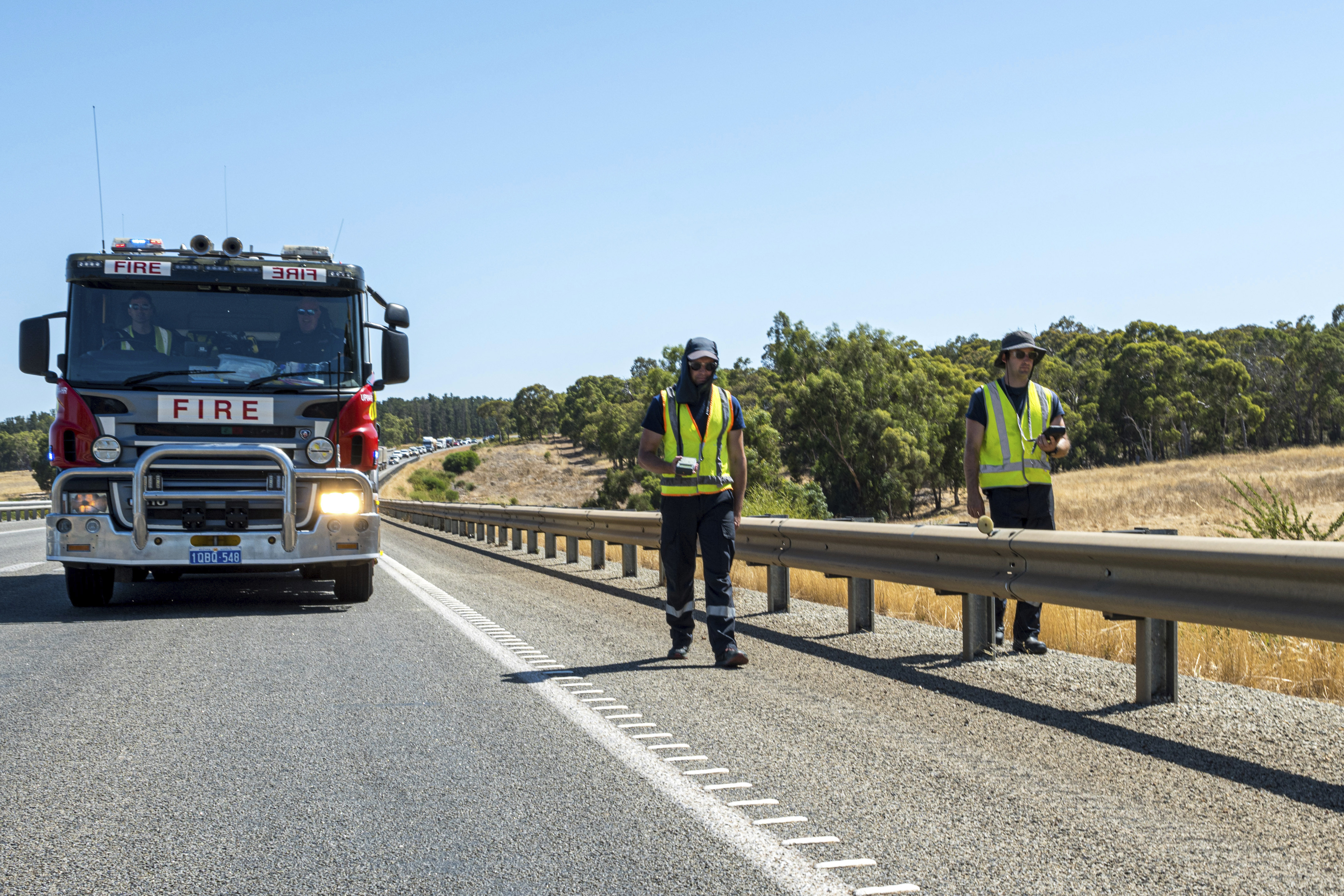Search is on for radioactive capsule lost in the Australian Outback


A free daily email with the biggest news stories of the day – and the best features from TheWeek.com
You are now subscribed
Your newsletter sign-up was successful
Australian mining corporation Rio Tinto lost a minuscule radioactive capsule, prompting a widescale search across Western Australia. The capsule, just 8 millimeters by 6 millimeters, is believed to have fallen off a truck somewhere in a 900-mile stretch in the Australian Outback, writes The Wall Street Journal. The truck left the company's desert mine on Jan 12. and the capsule was reported missing on Jan. 25.
"It's believed the container it was in at the time collapsed as a result of vibrations during the trip and unfortunately that included the loss of a bolt that was holding it on and it fell through that bolt hole," said Andrew Robertson, Western Australia's chief health officer.
The missing capsule contains Cesium-137, a radioactive isotope commonly used in radiation gauges, reports The Associated Press. It emits a radiation level equivalent to receiving 100 x-rays in one hour. If a person comes in contact with it, they can experience severe radiation sickness, skin damage, and burns.
The Week
Escape your echo chamber. Get the facts behind the news, plus analysis from multiple perspectives.

Sign up for The Week's Free Newsletters
From our morning news briefing to a weekly Good News Newsletter, get the best of The Week delivered directly to your inbox.
From our morning news briefing to a weekly Good News Newsletter, get the best of The Week delivered directly to your inbox.
The incident has sparked a search through the region, though it's like finding a needle in a haystack. Authorities are using radiation-detecting equipment to quicken the search. "Our concern is that somebody will pick it up, not knowing what it is, think 'Oh, this is something interesting' and keep it…not knowing what they are actually dealing with," said Robertson.
Chief executive of Rio Tinto Simon Trott has apologized for the incident saying, "We recognize this is clearly very concerning and are sorry for the alarm it has caused in the Western Australian community," adding, "As well as fully supporting the relevant authorities, we have launched our own investigation to understand how the capsule was lost in transit."
A free daily email with the biggest news stories of the day – and the best features from TheWeek.com
Devika Rao has worked as a staff writer at The Week since 2022, covering science, the environment, climate and business. She previously worked as a policy associate for a nonprofit organization advocating for environmental action from a business perspective.
-
 Political cartoons for February 19
Political cartoons for February 19Cartoons Thursday’s political cartoons include a suspicious package, a piece of the cake, and more
-
 The Gallivant: style and charm steps from Camber Sands
The Gallivant: style and charm steps from Camber SandsThe Week Recommends Nestled behind the dunes, this luxury hotel is a great place to hunker down and get cosy
-
 The President’s Cake: ‘sweet tragedy’ about a little girl on a baking mission in Iraq
The President’s Cake: ‘sweet tragedy’ about a little girl on a baking mission in IraqThe Week Recommends Charming debut from Hasan Hadi is filled with ‘vivid characters’
-
 Scientists are worried about amoebas
Scientists are worried about amoebasUnder the radar Small and very mighty
-
 A Nipah virus outbreak in India has brought back Covid-era surveillance
A Nipah virus outbreak in India has brought back Covid-era surveillanceUnder the radar The disease can spread through animals and humans
-
 Trump HHS slashes advised child vaccinations
Trump HHS slashes advised child vaccinationsSpeed Read In a widely condemned move, the CDC will now recommend that children get vaccinated against 11 communicable diseases, not 17
-
 Deaths of children under 5 have gone up for the first time this century
Deaths of children under 5 have gone up for the first time this centuryUnder the radar Poor funding is the culprit
-
 A fentanyl vaccine may be on the horizon
A fentanyl vaccine may be on the horizonUnder the radar Taking a serious jab at the opioid epidemic
-
 Health: Will Kennedy dismantle U.S. immunization policy?
Health: Will Kennedy dismantle U.S. immunization policy?Feature ‘America’s vaccine playbook is being rewritten by people who don’t believe in them’
-
 More adults are dying before the age of 65
More adults are dying before the age of 65Under the radar The phenomenon is more pronounced in Black and low-income populations
-
 Ultra-processed America
Ultra-processed AmericaFeature Highly processed foods make up most of our diet. Is that so bad?
